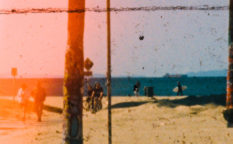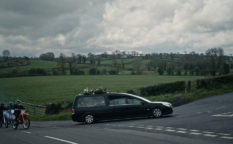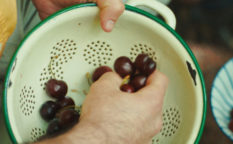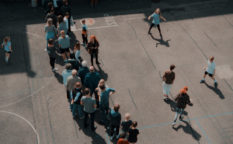Review: Refugee Lullaby (2019), by Ronit Kertsner
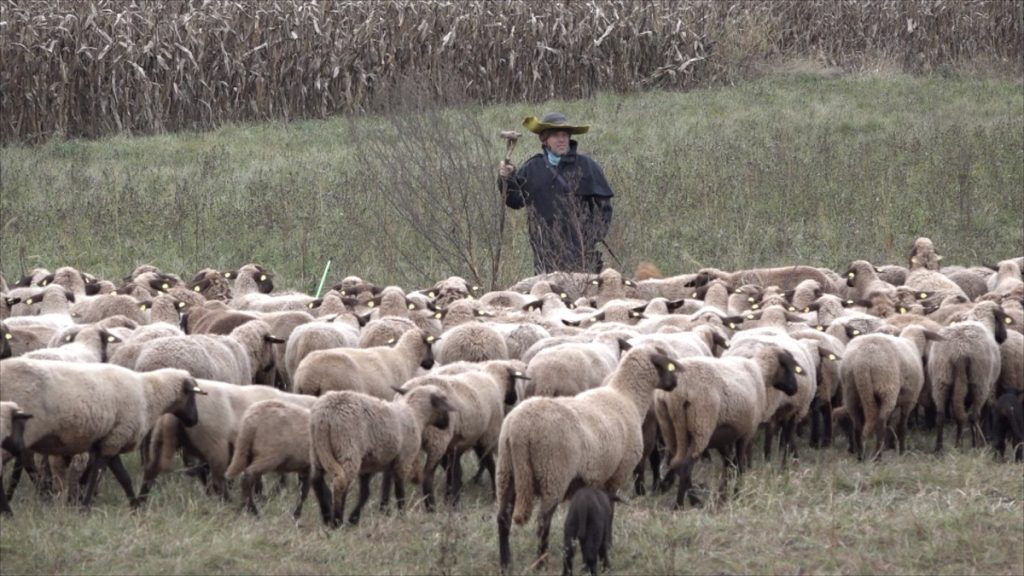
Film still. © WILDart Film 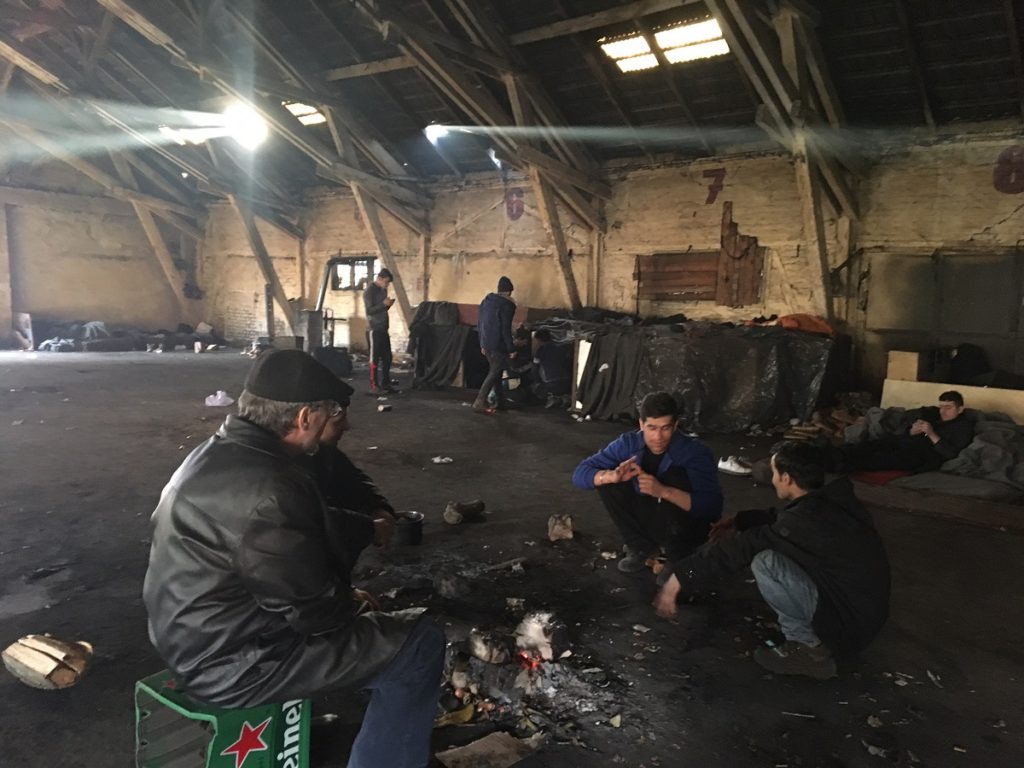
© WILDart Film
In her sixth documentary Refugee Lullaby, Ronit Kertsner aims her focus at Hans Breuer, a shepherd who had chosen a secluded, modest life-style in the countryside over his previous, Viennese. As the film opens, we see him teaching a lamb how to follow the sound of sheep, before he returns to what he likes the most – singing. His whole presence reminds of a Flemish painting, the huge grey felt hat included as he is gazing towards the endless meadows, contemplating about his vocation, mostly in verses. But it is not the shepherd life Ronit Kertsner is interested in, although she casts a curious glance into his sparsely furnished family abode in a cottage without running water, where children grow up to love and respect animals and nature alike. Instead turning to Breuer’s peculiar self-chosen lifestyle, the Israeli director returns yet again to her favourite topic: the question of identity, search for one’s own roots and answering pressing question of how much the family history influences one’s choices in life. And although the film shows Breuer’s philanthropic side, it also eavesdrops his stories about re-discovering Jewish culture and Yiddish, the language of his forefathers he not only set to learn in advanced age, but that he’s been using to write lyrics to his music ever since. Refugee Lullaby is equally a story of self-discovery as it is a touching account of a small group of people dedicated to help those in need.
Hans Breuer came into international focus in 2015 after the Guardian had published a story about his daily trips to Hungary to drive refugees over the border to a slightly friendlier place than the one that treats them with contempt. It is there he for the first time explained what motivated him to intervene – the destiny of his family and many other Jews during the Nazi regime. It is something he is also talking about in Kertsner’s movie: his parent’s involvement in the resistance, their open-mindedness and the terrible experience they had to go through during the Nazi Germany.
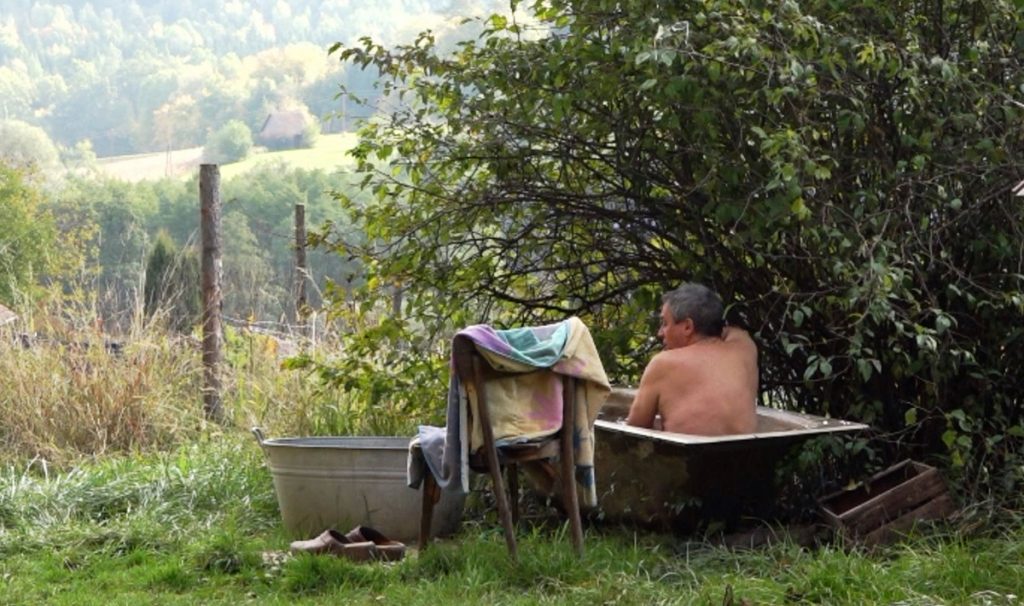
It is not known how many people Breuer managed to bring to Austria, but it must have certainly been several hundred. Ronit Kertsner joined him on a couple of night trips through the wilderness he knows too well, documenting some of the most touching moments – a river of exhausted people walking towards what they believe to be freedom, clutching onto a few belongings or carrying small children and helping the elderly, not believing that someone would come to give them a ride. Or the huge line of refugees standing patiently in a queue for food somewhere in the outskirts of Belgrade, their feet reflecting in the muddy puddles. Some of the material Ronit Kertsner shot in the Viennese home of Hans Breuer’s half-sister Verena who’s equally engaged in the refugee aid. It is there lots of plotting took place: collecting the data, contacting the other helpers, getting the information about oncoming trains and how many refuges they carried. With a network of private persons connected over social media, siblings organized food, clothes and hot tea, and went to meet people, to give them comfort and to provide them with information about what to do next. Visiting refugee camps in Serbia, Hungary and Austria, Breuer is seen sharing his songs and stories with men gathered around the bonfire in a run-down building in Serbia or trying to calm down a new-born baby in a Hungarian refugee camp.
Kertsner was introduced to Hans Breuer through a Youtube video in which he’s singing songs in Yiddish with refugees amidst the peak of the migrant crisis. Curious to dig out the story behind it, she contacted him, and not long after, the two met in Vienna, where she had a chance to take a close look at Breuer’s network of good-doers. As the film progresses there are more and more parallels drawn between the European past and present through the story of Hans’ parents who were Viennese communists and part of the resistance in the most dangerous times. Music becomes a connector between the private and the global reality and its natural acoustic companion, as the film embraces songs composed and performed by Hans Breuer, a man equally inspired by his roots and the now.
Refugee Lullaby might be a film woven around its main protagonist, but its narrative is universal as it is addressing compassion and humanity, and willingness to take actions to make a world a better place. On the other hand, the closeness to the subject doesn’t do the favour to all the participants in the cause, who turn into shadows of the lead man, including his life partner, who – although she refused to be featured in the movie as a figure of significance, appears as a farming, food-serving young woman, an image that gets corrected only through Q&A after the film screening. Admittedly not necessarily a mistake in directing, this feel of injustice might have been corrected in editing. Particularly strong is the photography by the cinematographer Shalom Rufeisen whose steady-held camera knows where to turn to, switching from gloomy to warm palettes as it adapts itself on situations along the way.
Refugee Lullaby which had its world premiere at the Diagonale, is a film needed in times of booming xenophobia and the incomprehensible success of right-wing parties across the continent.
Original Title: HaRoee
Country: Israel/ Austria
Language: English, German
Runtime: 72 min.
Production: WILDart FILM
Co-production: Ronit Kertsner Productions
Producers: Vincent Lucassen, Ebba Sinzinger, Ronit Kertsner
Directing/ Script/ Editing: Ronit Kertsner
Cinematography: Shalom Rufeisen,
Camera: Jerzy Palacz
Original sound: Johannes Bültermann, David Almeida-Ribeiro, Nora Czamler
Music: Hans Breuer
Sound design: Hjalti Bager-Jonathansson
Colour correction: Andi Winter, Dima Lydkhov
Re-recording Mixer: Manuel Grandpierre
Cast: Hans Breuer, Verena Krausneker, Mingo Georgi, Louis Georgi, Rosa Breuer, Efe Turumtay, Nikola Zarić

